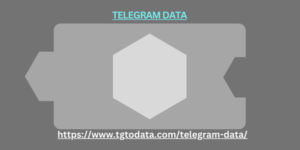Facebook, founded in 2004 by Mark Zuckerberg and his college roommates, quickly became a cornerstone of social media. Initially launched as a platform for Harvard University students, it expanded rapidly, opening to other Ivy League universities before eventually becoming accessible to anyone aged 13 and older with a valid email address. This inclusivity was instrumental in Facebook’s meteoric rise, transforming it into a global phenomenon and a household name.
Central to Facebook’s success is its ability to connect people worldwide, enabling users to share updates, photos, videos, and messages with friends, family, and acquaintances. The platform’s interface facilitates easy networking and communication, fostering relationships across geographical boundaries. Its user-friendly design and intuitive features have contributed significantly to its widespread adoption and continued popularity.
Facebook’s influence extends
Beyond personal interactions to encompass business, politics, and culture. It has revolutionized digital marketing, offering businesses unparalleled access to targeted advertising and analytics. This capability has made Facebook a critical tool for businesses seeking to reach specific demographics and maximize their online presence.
Politically, Facebook has played a pivotal role in facilitating Nigeria TG Number Data communication and mobilization during elections and social movements worldwide. The platform’s ability to disseminate information quickly has empowered activists and citizen journalists, sparking social change and holding governments and corporations accountable.
However, Facebook has not been without controversy. Concerns about user privacy and data security have plagued the platform, leading to regulatory scrutiny and public distrust. Issues such as the Cambridge Analytica scandal underscored the platform’s vulnerabilities regarding data privacy, prompting calls for increased transparency and accountability from Facebook and other tech giants.

Despite these challenges
Facebook remains a dominant force in the social media landscape. Its acquisition of Instagram and WhatsApp further solidified its market position, diversifying its offerings and expanding its user base. The platform continues to innovate, introducing features such as live streaming, virtual reality, and ecommerce integrations, ensuring its relevance in an increasingly digital world.
Looking forward, Facebook faces evolving challenges, including compet France Telegram Number ition from emerging social media platforms and ongoing regulatory pressures. However, its extensive user base and global reach provide a robust foundation for navigating these challenges and maintaining its position as a leader in social networking.
In conclusion, Facebook’s impact on society is profound and multifaceted, shaping how people connect, communicate, and engage with the world around them. Despite controversies and challenges, its influence on digital culture and global communication is undeniable, cementing its status as a defining platform of the 21st century.

